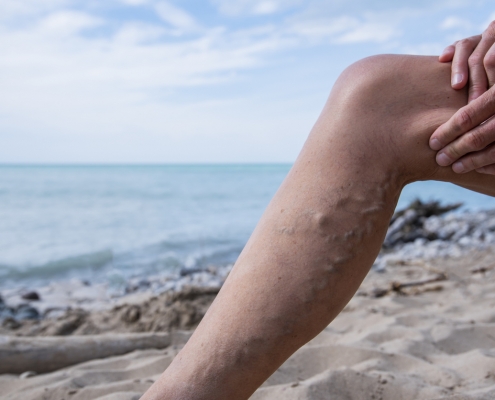Tag Archive for: vein specialist Kansas City

Consequences of Untreated Varicose Veins
Varicose veins are the result of faulty vein valves, which normally help to push “used” blood back to the heart for reoxygenation and recirculation. When one or more of these tiny valves fail to work, blood will pool in that part of the…

What to Expect from Your First Laser Vein Treatment Session
Lasers are now often used instead of knives and scalpels for various medical procedures. Thanks to their ability to target tiny areas of the body, such as problematic veins, a laser is utilized by your vein doctor to get rid of these veins once…

10 Vein Treatment Facts You Should Know
Varicose veins and spider veins on the face, ankles, and legs are some of the most common vascular issues adults face – particularly women. If you’ve decided to seek treatment from a vein specialist, here are 10 facts you should know.
#1…

Causes of Superficial Facial Veins
Spider veins are small, thin veins that look like spider webs or sunbursts on your skin. Although they can appear anywhere on your body, they tend to form most often on the face and the legs. They are the smaller version of varicose veins.
In…

How Can a Vein Specialist Help Treat Cardiovascular Conditions?
Cardiovascular conditions encompass all issues affecting blood circulation. They can affect people of all ages and from all walks of life.
At Missouri Vein Specialists, we are dedicated to providing high-quality care and the most cutting-edge…

How Do Spider Veins and Varicose Veins Form?
Varicose veins and their smaller version, spider veins, are a common circulatory condition that can result from having damaged or weakened valves in the veins. The valves are tiny parts of a vein that help to push the blood back to the heart…

How to Prevent Varicose Veins
People think of varicose veins as an inevitable consequence of aging. The good news is that while these swollen, gnarled veins are more likely to appear as we grow older, they are actually avoidable – and, if you do get them, they are definitely…

